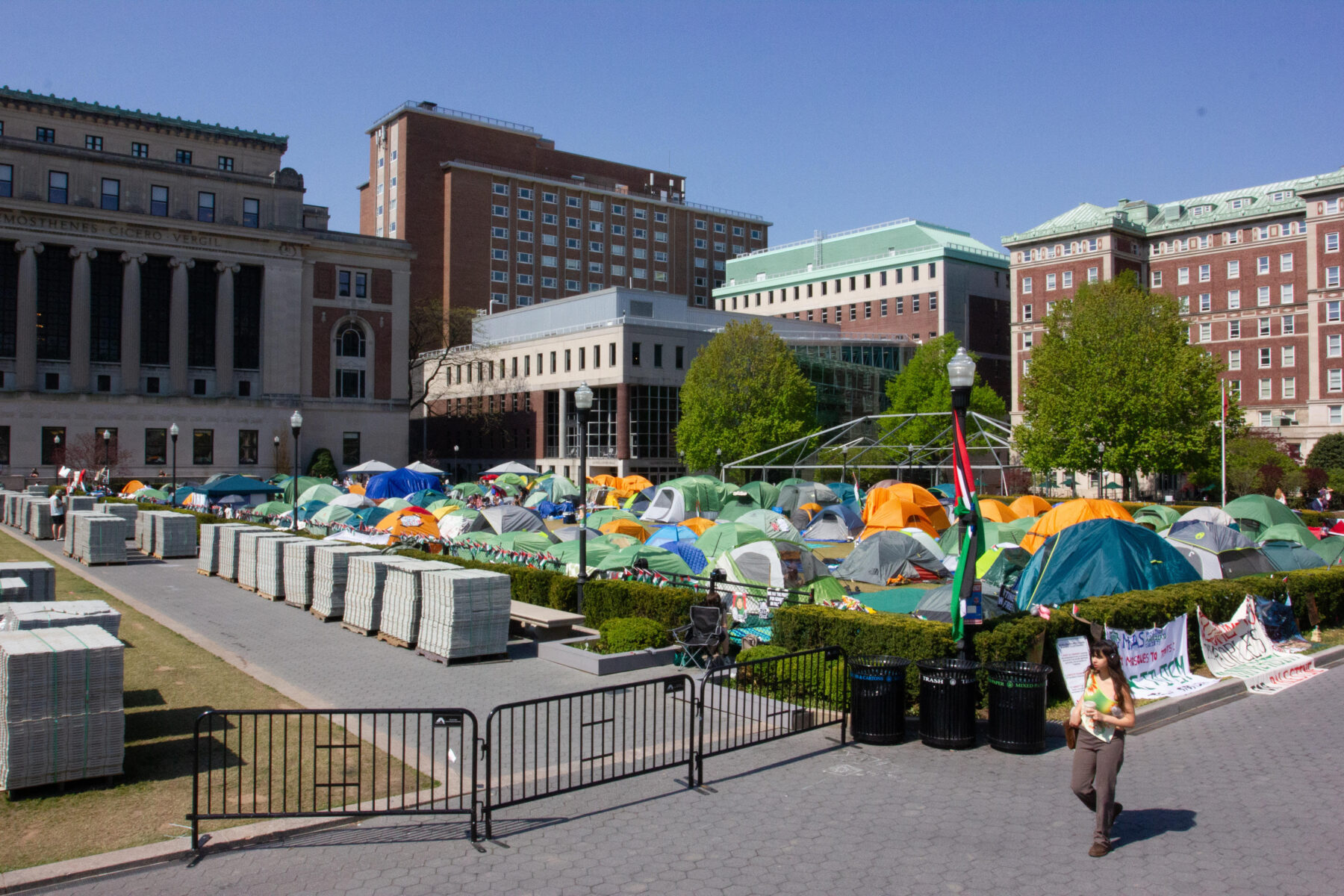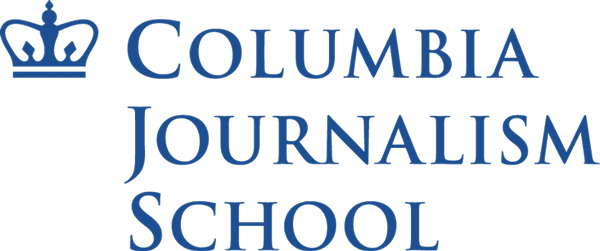
The Gaza Solidarity Encampment is shown before Monday’s demonstrations. (Credit: Edward Lopez)
Columbia officials said on Monday that they had begun to suspend students unwilling to leave the Gaza Solidarity Encampment.
On Monday morning, after Columbia University President Minouche Shafik announced negotiations had ended without an agreement, the school asked protesters to leave the camp voluntarily before 2 p.m. or face disciplinary actions.
“We have begun suspending students as part of this next phase of our efforts to ensure safety on our campus,” said Ben Chang, a university spokesperson, at a briefing on Monday at 6 p.m.
But students vowed to stay put.
As the deadline came, hundreds of students began marching around campus, repeating their demands for the university to divest from Israel. A large group of staff and faculty members, wearing orange safety vests, protected the camp in anticipation of law enforcement officers’ arrival. But Columbia safety officers didn’t intervene and New York City Police Department officers stayed outside of the campus gates.
“This is a smokescreen, bureaucracy is a prison and the students refuse to trade in the blood of Palestinians,” student organizer Sueda Polat said at a press conference on Monday afternoon, adding that the encampment will not be moved “unless by force.”
According to Shafik, a group of academic leaders and student protesters had been negotiating since Wednesday. But the talks hadn’t produced any meaningful results, so she asked those at the encampment to follow the university policies and vacate the lawn voluntarily. Those unwilling to leave would face suspension and won’t be able to graduate this May.
“We are consulting with a broader group in our community to explore alternative internal options to end this crisis as soon as possible,” Shafik said in a statement released on Monday morning.
It was unclear Monday evening how many students had been suspended. It is also unclear how the university intends to proceed with the demonstrations, which have expanded to other U.S. campuses in the past few days. On April 18, Shafik called the NYPD in to dismantle the initial camp, which ended with more than 100 arrests. But the protesters built a new encampment the following day, and on Friday, Shafik and other Columbia University leaders said that bringing back the NYPD would be “counterproductive.”
About the author(s)
Francesca is an Italian reporter covering politics for City Newsroom. She has reported in print, web, audio and video. Francesca speaks three languages.
Edward Lopez is from Fresno, California. He currently reports on New York City and is pursuing a Master's Degree in journalism.



